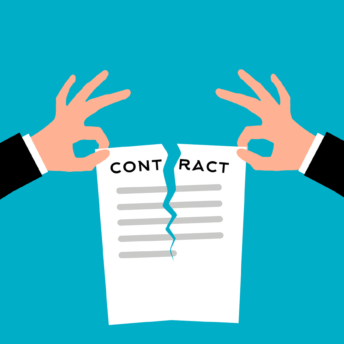Writing a Will is something we should all consider doing at some point in our lives. A Will is a legal document explaining your last wishes and can include who you would like to leave your assets to, what your funeral arrangements should be and also perhaps setting up trusts for loved ones to ensure their financial security, or instructions to leave something to your favourite charity. However, with so much of life being handled online, it’s likely you have digital assets that need to be addressed in your estate plan.
A digital Will will help to protect your privacy rights and ensure your property is properly transferred. It doesn’t need to be a legal document. A digital Will can simply be a list of all your digital property, where it’s stored, and the user name and email address associated with each account. In this article, what is a Digital Will, we take a look at the things to consider when creating one.
Free Initial Telephone Discussion
For a free initial discussion on how we can help you create your Will, get in touch with us today. We will review your situation and discuss the options open to you in a clear and approachable manner. Early expert legal assistance can help ensure your final wishes are accurately recorded and also avoid the stress of dealing with these issues on your own. Simply call us on 0345 901 0445 or complete our online enquiry form and a member of the team will get back to you.
Is there a recognised standard for writing a Will?
In theory you can write your Will on the back of an envelope. However, as it is a legally binding document it must meet certain criteria. It needs to be witnessed and signed by two independent adults and dated. These witnesses cannot inherit anything from your Will or benefit from your Will in any way (although they can act as executors). Your Will should also name your executors, who are authorised to gather in your assets and divide them up according to your instructions. This process is known as probate. As long as the executor is not a witness, they can be a beneficiary of the Will.
Is there a recognised standard for a digital Will?
A digital will can be an informal document that allows family members to close down your online accounts. If you want to transfer rights to things such as a domain name or a website, it’s advisable to account for these in your formal Will.
Arranging a digital Will is essential. It may take a little while to prepare but once it’s set up it will be easy to manage and maintain moving forward. You’ll need to create your digital Will and assign your digital assets to your friends and family. Once the inevitable happens, and your demise is certified, your digital assets will be sent to those that you have pre-chosen, be that family, friends or a solicitor.
There are companies that allow you to manage all your passwords and online information in one, secure place. With some you can also store notes for other types of important information, make your last wishes known and even attach documents, photos and leave messages for your loved ones.
It is worth noting that the law regarding the transferability of your digital assets can vary greatly.
For example, your iTunes purchases are only for a license to use the content, whether it’s books, music, or video. You don’t own the media, even if it’s downloaded. The Apple license is non-transferable so it can’t be left in your will. To avoid this problem, a few sites have policies, such as Apple Home Sharing, which allows people in the same household to access a common library.
All property that you own can be distributed in your formal Will or trust. You’ll need to check with each site or service provider to understand if your purchase is an ownership right that is transferable or simply a license to use the product.
Is there anything else to consider?
Make sure you include all the information needed and that all passwords are listed. Without them, online accounts cannot be accessed also, when using an online site to create your Will, make sure it uses encryption which converts information or data into a code, this will keep your online Will safe and secure.
Remember that to access the information in the digital Will, your family members will need to show proof of a death certificate to online networks and digital executors.
Digital Wills may also contradict the terms of service agreements that many websites have. For instance, if in their terms it says they cancel on death you may not be able to transfer accounts to another individual.
Some websites such as Google, Facebook and Instagram provide the ability to activate what is known as a “digital heir”. This allows your trusted contact to carry out your final wishes. Make sure you record in your digital Will where you have used these features.
Many web services do not offer an automated process for handling accounts after death, so accessibility to your passwords by digital heirs through a digital Will is really important.
Do not include your passwords or other digital asset access information in your Last Will and Testament. This is because your Will becomes a public document once you’ve passed away meaning anyone can read the sensitive information it may contain. In your Will simply refer to an additional document which contains all the necessary information needed to settle your digital estate. Then you will be able to maintain your digital Will, update it and add to it without having to formally change your Will or put your digital assets at risk.
Finally, in the UK, only a Last Will and Testament on paper, signed in ink by appropriate witnesses will be legally recognised. Although your Digital Will could contain information where your Last Will and Testament can be found, it cannot be used instead and a digital Will may not stand up in a court of law.
How we can help
We have a proven track-record of helping clients draft their wills. This includes relatively straightforward estates and also complex estates where assets are held all over the world. We will guide you through all the necessary legal due diligence in a comprehensive and timely manner. We firmly believe that with the right solicitors by your side, the entire process will seem more manageable and far less daunting.
How to Contact our Wills and Probate Solicitors
It is important for you to be well informed about the issues and possible implications of writing your Will. However, expert legal support is crucial in terms of ensuring your final wishes are met as you would want them to be.
To speak to our Wills and Probate solicitors today, simply call us on 0345 901 0445, or allow a member of the team to get back to you by filling in our online enquiry form. We are well known across the country and can assist wherever you are based. We also have offices based in Cheshire and London.






Leave a Reply
You must be logged in to post a comment.